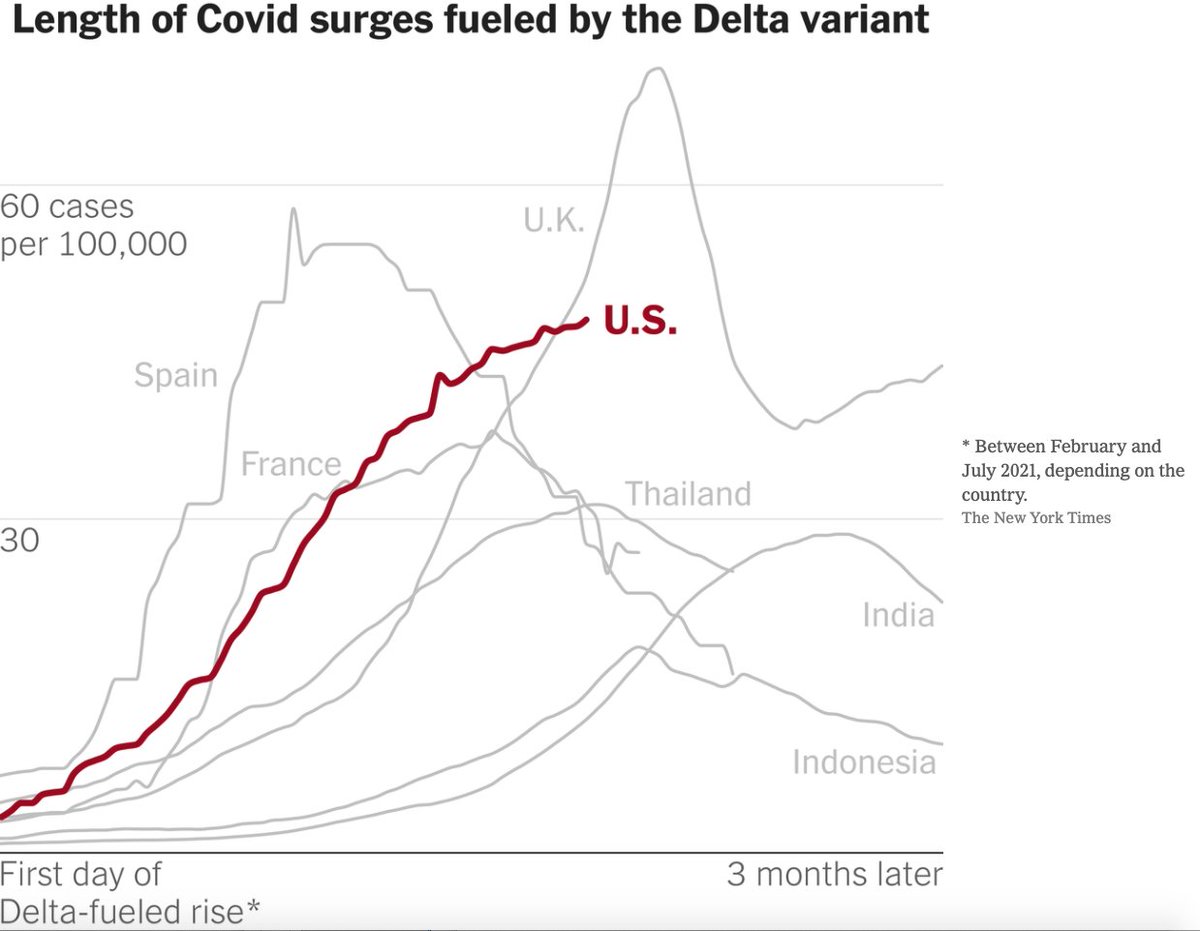
Too much Afghanistan commentary suffers from naïveté. It lacks critical thinking, as one journalist said to me.
Bottom line: Did Biden make mistakes? Clearly. Was there a clean way to leave? Almost certainly not.
🧵 to follow...
Longer version: nytimes.com/2021/08/25/bri…
Bottom line: Did Biden make mistakes? Clearly. Was there a clean way to leave? Almost certainly not.
🧵 to follow...
Longer version: nytimes.com/2021/08/25/bri…
A lot of commentary presumes that there was a clean solution for the U.S., if only Biden (and, to a lesser extent, Trump) had executed it. The commentary never quite spells out what the solution was, though.
There is a reason for that: A clean solution probably did not exist.
There is a reason for that: A clean solution probably did not exist.
The fundamental choice, as @helenecooper says, was between a permanent, low-level U.S. war in Afghanistan — a version of what McCain once called a 100-year war — and a messy exit.
“It was always going to be an ugly pullout," Helene says.
“It was always going to be an ugly pullout," Helene says.
The biggest failure in Afghanistan almost certainly was not anything that happened this week or even in the past decade. It was a decision, early in the 2000s, to seek total victory in a faraway war of questionable relevance to U.S. national interests.
In hindsight, the solution for Biden and team may seem obvious: Help many more Afghans leave the country *before* the military withdrawal. In reality, there was no easy way to do so.
Consider the final meeting between Biden and President Ghani, in D.C. on June 25...
Consider the final meeting between Biden and President Ghani, in D.C. on June 25...
... one of Ghani’s main requests was the U.S. do the opposite: limit evacuations.
NYT: “He wanted the United States to be ‘conservative’ in granting exit visas ... and ‘low key’ about their leaving the country so it would not look as if America lacked faith in his government.”
NYT: “He wanted the United States to be ‘conservative’ in granting exit visas ... and ‘low key’ about their leaving the country so it would not look as if America lacked faith in his government.”
It was an understandable request. A mass evacuation would have amounted to a surrender to the Taliban (for which Biden would have been blamed). The only hope for Ghani’s government depended on avoiding a large, advance evacuation of the Afghans who were helping run the country.
The fairest criticism of Biden acknowledges the implausibility of an enormous advance evacuation — and then grapples with the less-satisfying alternatives. They do exist.
Biden and his team appear to have based their strategy around the consensus view of U.S. intelligence that the Ghani government could hold off the Taliban for months. Little pre-withdrawal planning was based on the possibility — as some were warning — of a quick collapse.
“When you’re talking about life and death, you can’t just rely on the consensus opinion,” @michaelcrowley says. “You have to prepare for contingencies.”
In Afghanistan, contingency planning could have included a much more rapid acceleration of refugee visas, still done quietly. And...
... the administration could have been less definitive about the military’s August exit date: The more territory the Taliban seemed to gain, the more U.S. troops could have remained temporarily, to oversee evacuation.
All of these options still would have been messy. Many more people want to leave Afghanistan that will qualify for refugee visas, under any definition. But the alternatives could have the U.S. more time and space for evacuations.
Ultimately, the biggest alternative is the McCain scenario: the 100-year war.
Some former U.S. officials have suggested that it was worth the costs. On the other hand, these tend to be the same officials whose previous optimistic promises have repeatedly proven false.
Some former U.S. officials have suggested that it was worth the costs. On the other hand, these tend to be the same officials whose previous optimistic promises have repeatedly proven false.
At some point, the conflict with the Taliban would likely have intensified again, requiring more U.S. troops, money and sacrifice. Already, polls showed that a large, bipartisan majority of Americans wanted the military to leave.
All of which suggests that a withdrawal may have been inevitable, sooner rather than later. It could have gone better than it has. But it was probably destined not to go well. (fin)
nytimes.com/2021/08/25/bri…
nytimes.com/2021/08/25/bri…
• • •
Missing some Tweet in this thread? You can try to
force a refresh






